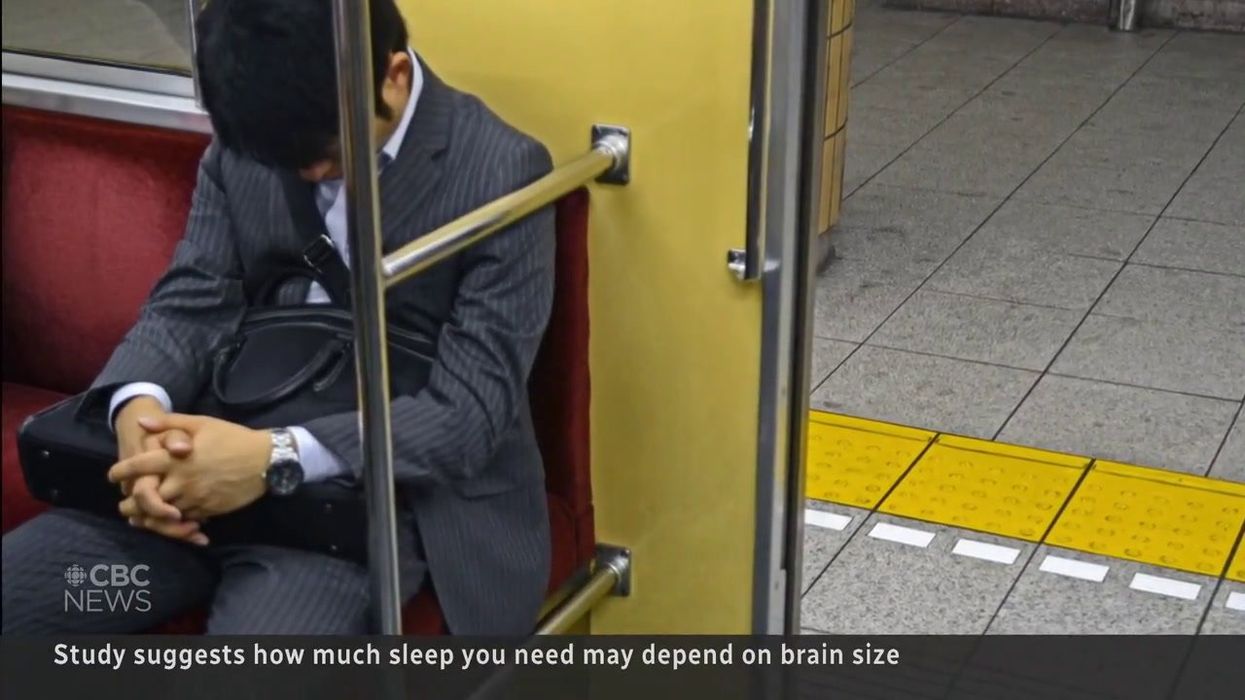Sinead Butler
Jun 30, 2023
New sleep study examines how brains function on less sleep
content.jwplatform.com
Those who lead busy lives or have a lot on their plate whether it be work, kids, or managing financial pressures and a survey from Uncertainty Experts has found this keeps 65 per cent of people awake at night.
Consequently, avoidance and distraction are the safety behaviours people often engage in to soothe their anxiety.
Now this topic is being discussed online thanks to the ‘revenge bedtime procrastination’ trend, where worries take over our lives so much that the only free time to relax is when were are meant to be getting sleep.
Sign up to our free Indy100 weekly newsletter
So, instead of getting shuteye, people put it off by browsing social media or looking at their phones to enjoy the free time they may have missed in the day's schedule.
With the hashtag reaching over 26.1 million views on TikTok, this unhealthy bedtime routine is growing in popularity.
Katherine Templar Lewis, an expert in behavioural psychology and lead scientist on The Uncertainty Experts, delved into the ‘revenge bedroom procrastination’ trend and provided some top tips on how to avoid falling into this bedtime habit.
(Uncertainty Experts are a valid scientific intervention, peer-reviewed, published, and proven to increase people's tolerance to uncertainty and therefore enable this Monday mindset).
“This trend is a classic example of a safety behaviour - a habit we often fall into to soothe us or distract us from a feeling of anxiety and its cause," Lewis said.
"The most common ones we have found from our research are wine, snacks, procrastination, and social media/ scrolling."
She added that revenge bedtime procrastination is "linked to the 'always on culture'" as people feel the need to constantly be on emails etc, especially when working from home where people feel they have to validate their time.
"We are terrible at switching off, with Gen Z allegedly the real doom scrollers."
The American Academy of Sleep Medicine surveyed more than 2,000 people and found that 93 per cent of Gen Zers and 80 per cent overall have stayed up past their bedtime to scroll through and engage on social media.
This can lead to sleep deprivation, daytime sleepiness, and problems with memory, learning, and mood throughout the day making it more difficult to focus and function properly.
The Psychology Behind Late-Night Social Media Scrolling
So, the irony is that we stay up late on social media scrolling for a few reasons. Here’s some of the psychology behind the ‘revenge bedtime procrastination’:
- A need for some space and time to ourselves in an 'always on' digital work era.
- A need to feel more 'in control' when days are often spent feeling out of control as we are super connected and 'always on' - this is our time to call the shots.
- A safety behaviour used to distract from negative emotions caused by uncertainty anxiety, or to make us feel safe by soothing the initial anxiety or distracting you from it. But very often the behaviours aren't particularly helpful in the long run or end up causing more anxiety.
- The increase in uncertainty makes us seek more information to seek certainty which can often be in the form of scrolling news online etc.
Top tips for avoiding the revenge bedtime procrastination trend
Here is some advice to curb your revenge bedtime procrastination:
"If you need some evening time to yourself read a book or listen to a podcast - they can help you switch off, will not increase stress through blue light, negative news (doomscrolling), and cycles of social validation," Lewis explained
"Dooomscrolling may lead to higher levels of psychological distress and lower levels of mental well-being indicators (mental well-being, life satisfaction, and harmony in life).
Lewis also recommends other activities such as breathwork, yoga, and embodied practice as well as sex to help improve your mental and physical health as well as a way to release good chemicals, de-stress, and have time to yourself at night.
"These positive behaviours will help regulate your nervous system without the negative consequences of late-night scrolling, and as such they will allow you to face any uncertainties rather than simply add to anxiety or allow you to avoid them. Thus, possibility and opportunity also lies within uncertainty."
Taking time out in the day for yourself is also key - "You can also put in breaks in your day to do the above, and really work on empowering yourself.
She added: "You wouldn't miss out on important self-care routines like teeth cleaning, so a daily 10 minutes to yourself to breathe or stretch or just read a chapter of a book should also become as important.
"Make sure to read up on the importance of sleep, it is the ultimate self-care and can increase your emotional resilience to the stress our constant uncertainties can cause.”
Elsewhere, having worked with the likes of Apple and Netflix, The Uncertainty Experts offer events through live and on-demand channels. This learning programme will give you the essential tools to transform your fear of uncertainty into an opportunity for positive change and new experiences.
You can book your early bird ticket for their event in October here at a reduced price of £199.
Have your say in our news democracy. Click the upvote icon at the top of the page to help raise this article through the indy100 rankings.
Top 100
The Conversation (0)














